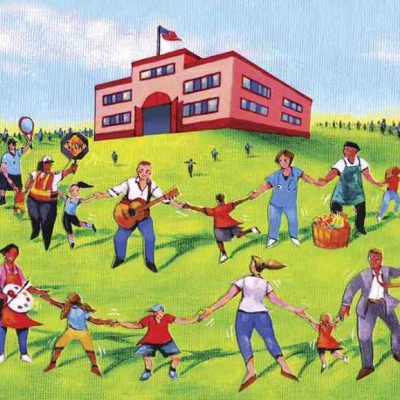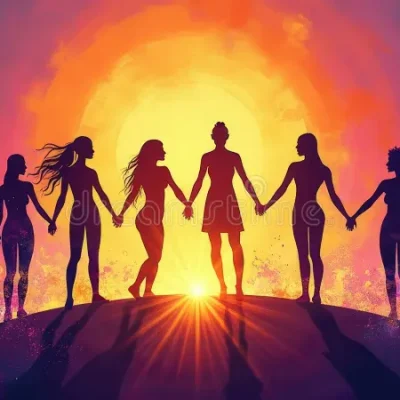The not so lovely part to culture: Cultural disconnection
First-generation immigrant children often feel a sense of being too “Americanized”. Regardless if you’re first-gen or not, living in the U.S. while valuing your ethnic background can feel like stepping your feet into two different worlds. We all know that the United States has loads of issues, one of them being that cultures and traditions can get lost along the way while living here. I mean both of my parents are immigrants but I still get told I’m not “Hispanic enough” just because I slightly mess up some words in Spanish. Yet I spend my days in a classroom listening to pure English juggling both of my identities at once, Latina and American.
Juggling two identities can mean many different things to people whether it’s culture being juggled, or… Regardless, having to carry the burden of two “personalities” or “backgrounds” starts to feel one-sided. Many people don’t acknowledge your culture because people are always wrapped around the background they see the most of, the “American” side. Now, this issue isn’t something that usually happens on purpose, people tend to look at the common side because that’s the one they can somewhat relate to, everybody comes from different backgrounds but as people who live in the U.S., that’s one thing we share in common.
My point is that because the “other side” of culture is being “hidden” and hardly being recognized, this can lead people to lose this connection to their culture and it is something we need to address. Cultural disconnection is a real underlooked issue that affects many people that have moved away from their home country. The way that the U.S. is set up is to fail the ones who come from different backgrounds, immigrants who come here hardly have any opportunities since the U.S is so restricted with their policies while first-gen students also struggle because not only do they feel the pressure of trying to succeed for their parents but also the pressure of having to handle two different backgrounds.
First gen immigrant kids are most likely to feel the tension of cultural disconnection, and this shows up as not feeling like they are enough. Feel like they want to change themselves which might mean disconnecting from a culture Not being enough is different for everyone but the way I see it is I’ll never be “Salvadorian” enough for my family because I’m too “American” but to others, I’ll never be “American” enough because I’m too “Salvadorian,” so this endless cycle just makes people want to change. This can affect the way first-gen kids see their culture. I have felt those moments where I wasn’t as connected to my culture because I grew up in a community that was completely different than at “home” which felt confusing. After all, every place had different beliefs and different ways of doing things.
In an article titled “Cultural disconnection: A too commonly encountered business problem” by Tim Sandle e and published by the digital journal, he talks about the issues that come with cultural disconnection. Focusing specifically on the issues in a workplace, it states that people in the business place experience this disconnection of their culture because of the “lack of unification” and how it can affect a person’s everyday life, “There are four critical aspects of being culturally disconnected and they can alter and affect how a person views and experiences the world. These can, in worst cases, derail a person’s career and their ability to feel fulfilled.” This is a huge issue because it can affect a person’s everyday life.
In another article “Fitting in or Standing Out? The trade-offs of Structural and Cultural Embeddedness” by Amir Goldberg, they mention something about emails and how you can tell when someone is connected to their culture, “we develop a novel approach to assessing individuals’ cultural fit with their colleagues in an organization based on the language expressed in internal email communications.” It has been proven countless times the way you speak and how you communicate in general is almost always influenced by the type of background you come from whether it is ethnic wise or the community around you.
The most common problem with being disconnected from your culture is eventually disconnecting from yourself by trying to fit in. A lot of people don’t feel the need to connect back to their roots and that’s a personal choice but not seeing it as important is an issue itself. Having a connection to your culture is something crucial for everybody, for society as a whole. It’s something that adds to your personality, all those customs and traditions make up your identity. At the end of the day take pride in where you’re from regardless of if you know a lot about it, you should always feel proud of who you are as a person.







